Did you know that helplessness is usually a learned state of being? It is. We’re a lot like dogs in that regard. Grant’s story illustrates that for us.
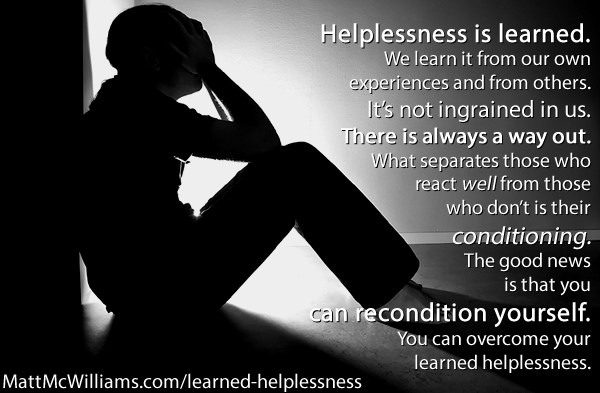
“I am completely lost.” Grant said. “The economy is in shambles. I lost my job. This president…”
I stopped him right there.
“Grant, you feel helpless don’t you?” I asked him as compassionately as I know how.
“But I am helpless. You have no idea what it’s like to feel this way.”
“You’re right,” I stated matter-of-factly. “I don’t know what it’s like to feel exactly as you do.”
I allowed him some time to recognize that I wasn’t pretending to be perfect or trying to show fake understanding.
“But I know what it’s like to feel helpless. We’ve all learned that.”
“Learned that?” Grant asked confused.
“Yes, helplessness is learned. We learn it from our own experiences and from others. It’s not something that is ingrained in us. Now, I could get all theological on you, but why don’t I share the science of what I am saying.”
“OK,” he shrugged reluctantly but with a smile, “I’m curious.”
The psychology of helplessness
Little known fact: I was a psychology major for two whole semesters in college. I have always been fascinated by the human brain and performance psychology, so it made sense. I may not have made it as a psych major (my 2.4 GPA was only going to get worse once I got into abnormal psychology…I had no interest in that stuff), but I did learn quite a bit.
I remembered two studies and shared them with Grant. The first was shared in the 1991 book Learned Optimism (pages 19-29) by Martin Seligman.
In it, Seligman, who later became the father of positive psychology, recalled a study done on dogs. The dogs would hear a bell and immediately receive a small shock. Once they were conditioned to associate the bell with the shock, they were placed in a shuttlebox. Think of it like a small room with two sides, with a short wall in between. The wall was short enough for the dogs to physically jump over. On one side, they would be shocked. On the other, they were not.
What is most fascinating is that when they were placed on the shock side, they never attempted to jump to the shock-free side. They had been trained to be helpless.
Just to prove that it’s not only dogs that can learn helplessness, I shared another study done on people by Donald Hiroto entitled The locus of control and learned helplessness.
In this study, they formed two groups and placed them in two rooms. They were subjected to a very loud noise and shown a control panel that they were told would turn it off.
For group one, the control panel worked. It turned off the noise. For the second group, it was impossible. The psychologists studying these groups rigged the panel to do nothing.
Then each participant went to a separate room that was just like a shuttlebox and they were again subjected to the noise. But here’s the catch…all they had to do to turn off the noise was simply move their hand from one side to the other. That was it. Nothing complicated at all.
The first group, which previously had success at turning off the noise, easily figured this out and turned it off.
The second group, conditioned to believe it was impossible to turn off the noise, did nothing. They followed the same pattern as the dogs. They sat there with their hands still. They were helpless.
Grant sat in silence for a few moments, processing this new information.
“So you’re saying I’ve been conditioned to feel helpless when things get tough?”
“It seems to me that you go into shutdown mode, Grant. Then you look for all that can go wrong to actually go wrong. You act as if the world is completely against you.”
I waited for him to get past the bluntness of what I had just said and reminded him that this was normal. We all do it.
“When life shocks you or plays an obnoxious noise,” I began. “There is always another side, a way out. What separates those who react well from those who don’t is their conditioning. The good news is you can recondition yourself. You can overcome your learned helplessness.”
“How do I do that,” Grant asked, still not sure what I was saying was possible.
“That, my friend, is a topic for tomorrow. Until then, I want you to make a list of all of the ways you’ve been conditioned to be helpless. What are you helpless over? Where have you lost control? Bring that list to our meeting tomorrow and we’ll work through how to overcome learned helplessness.”
Stay tuned tomorrow when I’ll share how to overcome learned helplessness. Subscribe to my RSS feed or get posts via email (and get my free book as a bonus) so you don’t miss it.
What are some ways you’ve been conditioned to be helpless?
Questions?
Text me anytime at (260) 217-4619.
Or…check out some of my free reports to help you get on the right track:
 |
 |
 |
 |
 |
 |
 |
 |
 |




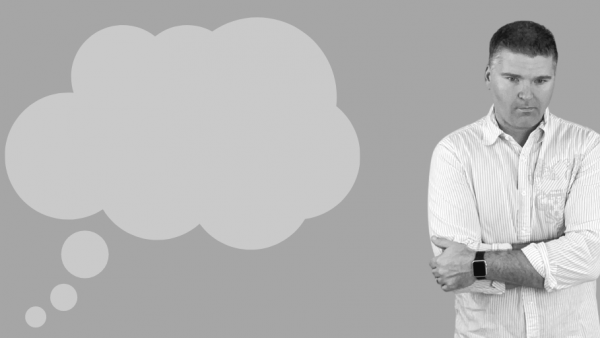
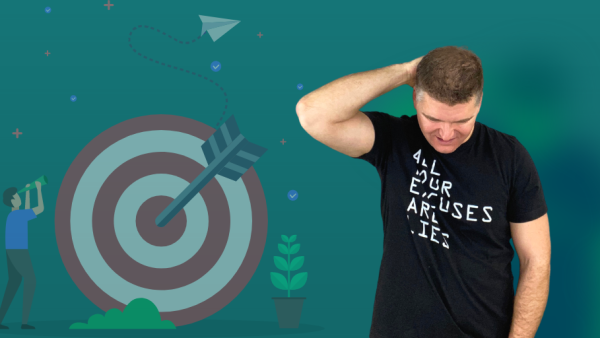
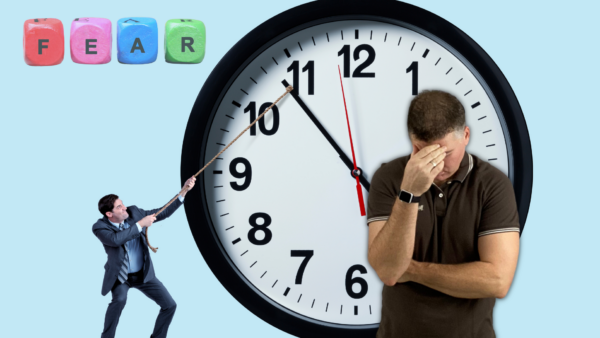
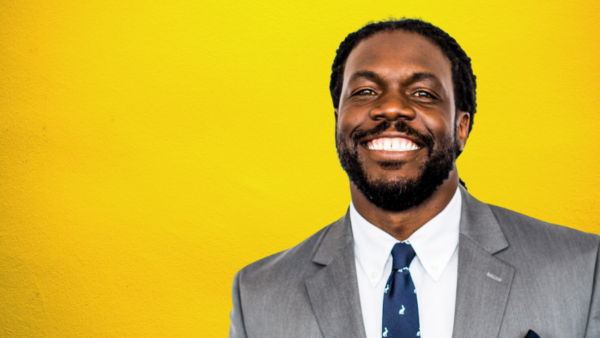
I’ve been conditioned to expect great content from this blog – and it keeps happening over and over. I feel helpless!
For many years, I was conditioned to accept the status quo. Just do what you’re told. Don’t ask questions. Don’t go beyond the expectations (co-workers hate it when you do more than them because it makes them look bad). I was always just above average, but still in the status quo.
Keep busting through the status quo man. Check out Friday’s post…i think it will speak directly to that.
I don’t settle for the status quo any more, so I’m looking forward to reading that post.